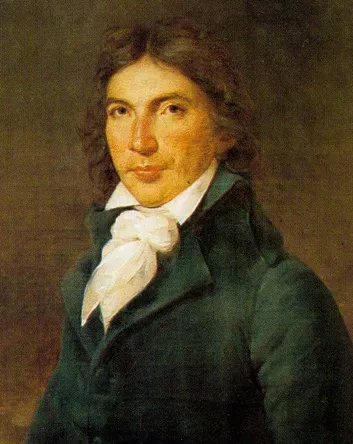
Name: François Joseph Westermann
Birth Year: 1751
Death Year: 1794
Nationality: French
Occupation: General
François Joseph Westermann was a notable figure in the tumultuous period of the French Revolution, remembered as a dedicated general and an ardent supporter of revolutionary ideals. Born on September 26, 1751, in the small town of La Rochelle, France, Westermann rose to prominence during a time when France was undergoing radical changes that would shape its future. He was not just a soldier; he was a staunch advocate for liberty and equality, principles that were central to the revolutionary cause.
Westermann’s military career began in the early 1790s, and he quickly demonstrated a talent for leadership and strategy. His early involvement in the revolutionary wars showcased his abilities, particularly during the Campaign of 1792, where he fought against foreign monarchies intent on quelling the revolutionary spirit of France. He rapidly ascended the ranks of the military, earning the respect of his peers and commanding forces in several key battles.
One of the pinnacles of Westermann's military career came during the Vendée uprising, a royalist revolt against the revolutionary government. In 1793, he was appointed to lead troops into the region, where he faced not only royalist forces but also the challenges of guerrilla warfare. His firm strategies and aggressive tactics led to several decisive victories. However, the conflict was marked by a brutal campaign, and the methods employed by Westermann and his troops have since drawn scrutiny and criticism for their severity.
Tragically, Westermann’s commitment to the revolutionary cause put him in precarious positions not only on the battlefield but also within the political turmoil of revolutionary France. After a distinguished military career, he fell out of favor due to the radicalism and violence of his policies in the Vendée. In 1794, Westermann was arrested amid the Reign of Terror, a period characterized by mass executions and paranoia against supposed enemies of the revolution.
Despite his previous contributions, Westermann was sentenced to death, and on April 10, 1794, he was executed by guillotine in Paris. His death is often overshadowed by the political machinations of the time, but it serves as a poignant reminder of the dangers faced by those who fought fervently for revolutionary ideals but fell victim to the very system they sought to uphold. Today, historical assessments of Westermann's legacy acknowledge both his military prowess and the moral complexities of his actions during the Vendée uprising.
In conclusion, François Joseph Westermann is remembered as a symbol of the Revolutionary period in France a man who ardently supported the ideals of liberty and equality, yet whose life was ultimately cut short by the very revolution he championed. Understanding his contributions and the inherent contradictions of his legacy provides important insights into the breadth of the French Revolution itself.




